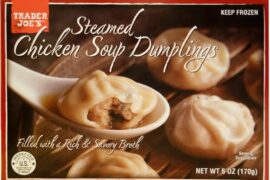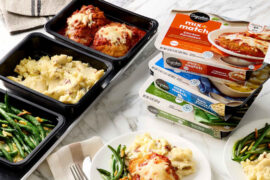Online commerce giant Amazon is poised to take over Whole Foods Market, Inc. in a $13.7 billion deal that will include net debt obligations of the Austin, Texas-headquartered retailer, which bills itself as “America’s healthiest grocery store.” The cash transaction will pay stockholders $42 per share and is expected to close during the second half of 2017, subject to regulatory approvals.
 Seattle, Washington-headquartered Amazon, founded in July 02 1994, is the largest Internet-based retailer in the world by total sales and market capitalization. In 2015 it surpassed Walmart as the most valuable retailer in the United States, and is ranked as the most valuable company on the planet in terms of revenues, and as the eighth largest employer in the USA.
Seattle, Washington-headquartered Amazon, founded in July 02 1994, is the largest Internet-based retailer in the world by total sales and market capitalization. In 2015 it surpassed Walmart as the most valuable retailer in the United States, and is ranked as the most valuable company on the planet in terms of revenues, and as the eighth largest employer in the USA.
“This deal is potentially terrifying for other grocers,” according to Neil Saunders of retail analysis firm GlobalData. “Although Amazon has been a looming threat to the grocery industry, the shadow it has cast has been pale and distant. That has now changed as Amazon has moved squarely onto the turf of traditional supermarkets and poses a much more significant threat.”
The definitive merger agreement is surely not “terrifying” to shareholders, however, who have seen the stock’s value decline in recent years. In October of 2013 it was priced over $65.
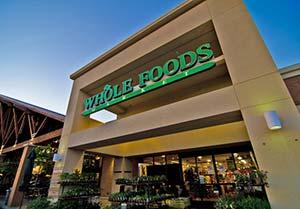 “This partnership presents an opportunity to maximize value for Whole Foods Market’s shareholders, while at the same time extending our mission and bringing the highest quality, experience, convenience and innovation to our customers,” said John Mackey, the company’s co-founder and chief executive officer.
“This partnership presents an opportunity to maximize value for Whole Foods Market’s shareholders, while at the same time extending our mission and bringing the highest quality, experience, convenience and innovation to our customers,” said John Mackey, the company’s co-founder and chief executive officer.
Amazon CEO Jeff Bezos, said to be the world’s fourth richest person with $63.1 billion in personal assets, commented: “Millions of people love Whole Foods Market because they offer the best natural and organic foods, and they make it fun to eat healthy. Whole Foods Market has been satisfying, delighting and nourishing customers for nearly four decades – they’re doing an amazing job and we want that to continue.”
Stores will still be operated under the Whole Foods Market banner, and there will no change in the way its buyers source products from vendors and partners around the world. Mackey will remain as chief executive and headquarters will stay in Austin.
Founded in 1978, Whole Foods Market is regarded as the leading natural and organic foods supermarket chain in the United States and the first national “Certified Organic” grocer. Sales in fiscal year 2016 were approximately $16 billion. The retailer operates 466 units in the United States, Canada and the United Kingdom, and employs approximately 87,000 people.
Competitors Brace Themselves
Colemanbrandworks (CBX), a New York City-based branding and retail consultancy, described the pending acquisition as “a bombshell with potentially massive reverberations” for both food brands and the world of brick-and-mortar retailing.
“For starters, this acquisition promises to shake up pricing, the e-commerce space, the trajectory of retail automation in the United States, and the already considerable competitive pressures faced by existing food retailers,” said Todd Maute, senior vice president and partner at CBX. “When it comes to making bold moves aimed at disruption, Amazon never disappoints.”
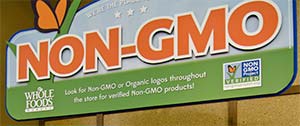 Maute noted that the online retail powerhouse has already dipped its toe into brick-and-mortar retailing with the likes of its Amazon Books bookstores and ongoing experiments with small-format grocery stores. Snapping up Whole Foods, however, marks its most serious commitment to date.
Maute noted that the online retail powerhouse has already dipped its toe into brick-and-mortar retailing with the likes of its Amazon Books bookstores and ongoing experiments with small-format grocery stores. Snapping up Whole Foods, however, marks its most serious commitment to date.
“The possible effects on Whole Foods alone are interesting to contemplate,” said Maute. “For example, the consumer perception of Whole Foods is that it is overpriced. But given its massive buying power, Amazon could actually leverage its economies of scale to bring down prices in the aggregate and change this perception in ways that would make Whole Foods a lot more competitive.”
In terms of inventory and infrastructure, the CBX private label specialist pointed out that the acquisition could give Amazon a solid foundation for ramping up online grocery sales and delivery via Amazon Fresh.
“My guess is that Whole Foods will become a launching pad for Fresh,” he said. “But at a minimum, this move could get Whole Foods into the online space much faster, in theory, than any other retail competitor. That would clearly have big ramifications for the likes of Walmart, Kroger and Publix, all of which are racing to develop their own capabilities for online ordering and click-and-collect.”
In addition, the holy grail of voice-assisted ordering through the likes of Amazon Echo or Google Home is to be in the customer’s kitchen.
“Now Amazon can give its Prime customers a lot of new options,” Maute said. “They could get discounts on popular Whole Foods products just by saying ‘Alexa, order me some more Whole Foods 365 peanut butter, organic, creamy.’ It’s a potentially big step forward in this fast-growing space.”
Whole Foods’ brick-and-mortar real estate, moreover, could potentially be of use to Amazon as it seeks to grow its distribution capabilities.
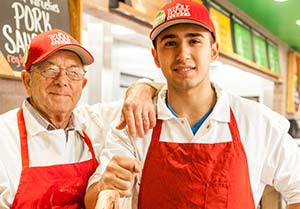 “This is real estate that could be used for pickups, returns, warehousing, you name it,” said Maute. “And think about this: the Amazon Go test store uses sensors, cameras and machine intelligence to eliminate cashiers and checkout lines. Now Amazon has a national brick-and-mortar footprint with which to roll out this game-changing technology. It’s still speculation, of course, but this acquisition could be a big first step toward the automation of US retailing.”
“This is real estate that could be used for pickups, returns, warehousing, you name it,” said Maute. “And think about this: the Amazon Go test store uses sensors, cameras and machine intelligence to eliminate cashiers and checkout lines. Now Amazon has a national brick-and-mortar footprint with which to roll out this game-changing technology. It’s still speculation, of course, but this acquisition could be a big first step toward the automation of US retailing.”
Is there a Darker Side?
For his part, CBX Managing Partner Gregg Lipman pointed to a potential darker side of such moves, citing the ever-growing juggernaut of Alibaba Holding Group Limited, the Chinese-based conglomerate.
“In China, the great Alibaba is doing the same thing as Amazon is here,” Lipman said. “They fly under the banner of benefiting the consumer – and, to be sure, some of these changes could be good for consumers – but in the end, it is all about the bottom line.”
As Amazon flirts with disparate businesses ranging from prescription drugs to real estate brokerage, the fallout is hardly a win-win for everyone, according to Lipman.
“The pressure they exert on suppliers is stifling,” he explained. “Their buying power, which is growing by the day, can be seen as forcing unfair or unreasonable practices on suppliers. The net effect is that the rich get richer.”
Increasingly, Lipman added, Amazon’s private label initiatives are giving it the ability to either participate in or actually dominate various retailing categories.
“At what point do they own the entire food chain, whether in equity or buying power?” he asked. “Remember, Amazon is willing to lose money to win market share and kill off competitors. This should be a concern, not only for food retailers, but also for food brands.”


